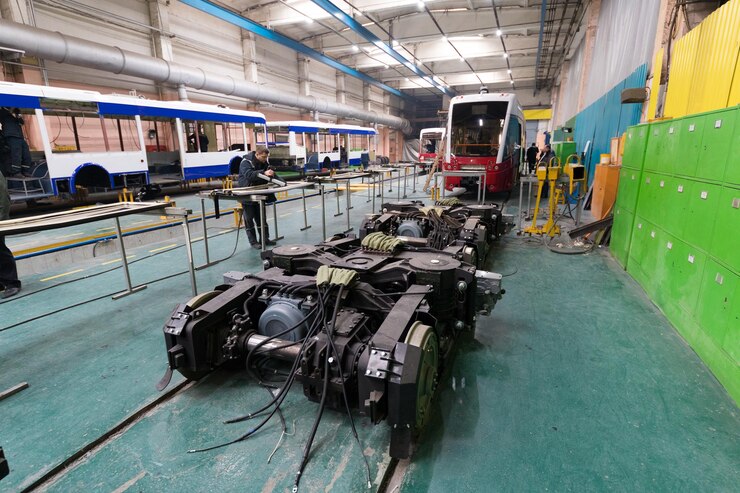The operativeunitfld plays a pivotal role in maintaining security and executing intelligence-driven field operations that safeguard national interests and respond to critical global threats. Known for its specialization in covert and complex field missions, Operative Unit FLD has emerged as a key force in intelligence operations worldwide. In an era where threats are increasingly multifaceted, FLD’s capabilities allow it to conduct both independent and collaborative missions that mitigate risks ranging from terrorism to cyber infiltration.
Understanding the Role of FLD in Global Security
Operative Unit FLD is designed to act as the frontline defense against pressing security concerns, particularly in regions that are volatile or unpredictable. By combining intelligence with actionable field strategies, FLD strengthens the overall security posture of a nation. Its contributions are critical for preemptive security measures and form the backbone of real-time responses to high-stakes scenarios. In collaboration with other defense and intelligence units globally, FLD ensures a comprehensive approach to addressing threats before they escalate.
Core Functions of Operative Unit FLD
The operative core of operativeunitfld revolves around intelligence gathering, rapid response, and field execution. Unlike conventional military or law enforcement bodies, FLD operates in both civilian and high-risk areas, often under challenging conditions. The unit handles operations such as reconnaissance, target acquisition, and intelligence verification, enabling other departments and agencies to act on reliable information. Additionally, FLD personnel are often involved in supporting humanitarian and crisis response efforts, providing both tactical and strategic aid.
Operative Unit FLD: Organizational Structure
FLD’s structure includes multiple sub-units, each with a specific focus, such as intelligence analysis, field reconnaissance, and crisis intervention. This hierarchical setup is designed to enhance decision-making efficiency and streamline the deployment process. With specialized teams and task forces, FLD can adapt to various mission requirements, ensuring that the right expertise is available where and when it is needed most.
Training and Expertise in Operative Unit FLD
Personnel within the Operative Unit FLD undergo rigorous training in areas like surveillance, field communication, and cultural sensitivity. This training not only prepares them for the physical demands of fieldwork but also enhances their ability to gather and analyze intelligence accurately. The unique environment in which FLD operates requires individuals to be adaptable, resilient, and highly skilled in interpreting complex situations quickly.
Field Operations Conducted by FLD
FLD’s operations encompass a broad spectrum of field missions, ranging from high-risk infiltrations to coordinated crisis response initiatives. These operations often require cross-functional teams and a multidisciplinary approach, as operativeunitfld must balance immediate tactical needs with strategic long-term goals. A common mission might involve covert entry into hostile territory to gather intelligence, protect assets, or neutralize threats with minimal disruption.
The Role of Intelligence in FLD Operations
Intelligence is the cornerstone of operativeunitfld ‘s success. In field operations, real-time data and preemptive intelligence allow FLD to make informed decisions quickly. Field teams rely on intelligence networks, satellite imagery, and cyber surveillance to understand threat levels, monitor hostile movements, and devise strategies for both offensive and defensive missions.
Risk Management in FLD Operations
Risk is inherent in FLD operations, but advanced risk management techniques are crucial to protect operativeunitfld personnel and minimize collateral damage. The unit employs situational analysis, strategic planning, and adaptive response mechanisms to mitigate unforeseen complications. This proactive approach allows FLD to maintain operational integrity, even under challenging circumstances.
Operative Unit FLD’s Technological Capabilities
FLD incorporates cutting-edge technologies in communications, surveillance, and field operations to maintain a strategic advantage. From satellite imaging and GPS tracking to encrypted communications, technology enables FLD to operate efficiently and maintain secrecy in sensitive missions. Technological capabilities also support data analysis, ensuring operativeunitfld has a comprehensive understanding of its operating environment.
Global Partnerships and Collaborations of FLD
As security challenges increasingly span international borders operativeunitfld partners with various foreign agencies to foster cooperation and share intelligence. These partnerships are particularly valuable in operations that involve multiple jurisdictions, enabling operativeunitfld to collaborate with local enforcement and other intelligence entities to achieve common security goals.
Case Studies: Successful FLD Operations
Throughout its history, operativeunitfld has conducted numerous successful operations that highlight its operational strengths and strategic impact. Notable missions may include anti-terrorism efforts, cyber infiltration prevention, and targeted neutralizations of high-level threats. These case studies demonstrate FLD’s expertise, operational efficiency, and the strategic importance of its contributions to global security.
Challenges Faced by Operative Unit FLD
The complex nature of FLD’s work presents several challenges, from the need for advanced technological resources to managing political sensitivities in international operations. Constraints such as funding, recruitment, and constantly evolving security threats require FLD to remain adaptive and innovative to continue fulfilling its mandate.
Operative Unit FLD’s Contribution to Intelligence
FLD supports broader intelligence efforts by providing real-time data, conducting ground-level reconnaissance, and offering insight into emerging threats. This input is essential for decision-makers who rely on FLD intelligence for national and international policy adjustments and security planning.
Ethical Considerations in FLD Operations
The covert and often high-stakes nature of operativeunitfld raises ethical concerns, particularly regarding surveillance, civilian safety, and engagement protocols. FLD upholds strict ethical standards to ensure that its actions align with international laws and human rights while balancing the necessity of its security objectives.
Conclusion: The Evolving Role of Operative Unit FLD
operativeunitfld continues to be an invaluable part of global security, adapting to new challenges and technological advancements to protect national interests and respond to global threats. Its strategic field operations, intelligence-driven approach, and collaborative nature underscore its significance in an interconnected world facing multifaceted risks. As security landscapes evolve,operativeunitfld FLD’s mission will only become more crucial in safeguarding the interests of nations and contributing to peace and stability on a global scale











